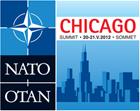NATO in the Windy City
Ralitsa Kovacheva, May 18, 2012
 Leaders of NATO member states are gathering in Chicago on 20 and 21 May. The summit does not have the ambitions of Lisbon 2010, when the pact approved its new strategic concept. Rather, in Chicago it is expected the Lisbon decisions to be developed and translated into concrete programmes and initiatives. Discussions will focus on three main topics: the Alliance’s commitments in Afghanistan during the transitional period and beyond; implementation of its main tasks and development of its capabilities under the financial crisis; and strengthening NATO's network of partners across the globe.
Leaders of NATO member states are gathering in Chicago on 20 and 21 May. The summit does not have the ambitions of Lisbon 2010, when the pact approved its new strategic concept. Rather, in Chicago it is expected the Lisbon decisions to be developed and translated into concrete programmes and initiatives. Discussions will focus on three main topics: the Alliance’s commitments in Afghanistan during the transitional period and beyond; implementation of its main tasks and development of its capabilities under the financial crisis; and strengthening NATO's network of partners across the globe.
Afghanistan
Already in Lisbon NATO has committed to continue its support for Afghanistan after 2014, when the security responsibility should already be in the hands of the Afghan national security forces and the mission of NATO will end. In 2013, when the last stage of transition is planned, Afghan forces will have the leading role in combat operations across the country. NATO will continue to support combat operations alongside Afghan forces, if necessary, but will increasingly have a training and advising role. Namely the specific steps how the transition process to be completed by the end of 2014 and how NATO will provide training, advice and assistance to Afghan forces will be discussed by the leaders at their meeting in Chicago.
The star on this topic will undoubtedly be the new French president, Francois Hollande, who, during his campaign, promised to withdraw the French troops from Afghanistan by the end of this year or two years before the deadline announced by NATO. Hollande is arriving to the US today (May 18th) for the G8 Summit at Camp David, but before that he will meet for the first time President Barack Obama and Secretary of State Hillary Clinton. After that Hollande will have his first meeting with British Prime Minister David Cameron, who is not satisfied as with Hollande`s campaign promises for early French withdrawal from Afghanistan, so with his vows to change the focus from austerity to growth by pouring money into the economy .
More security for less money
One of the biggest challenges facing NATO is the organisation to implement its goals and tasks in times of budget constraints and reduced defence spending at national level, NATO Secretary General Anders Fogh Rasmussen said in Lisbon in 2010. He explained that countries needed to pool their resources and to prioritise better, so that taxpayers get more security for their money. Eighteen months later, the pressure of the crisis on Europe and the US has not lost weight at all. So, the countries are still searching for solutions to realise the so-called "smart defence", where member states pool their resources to overcome the shortages of money and avoid duplication and unnecessary costs.
Around 20 "smart defence" projects will be announced in Chicago, but questions will remain of how "new' or how 'shared' these programmes really are, Mark Jacobson wrote in an analysis posted on the German Marshall Fund`s blog. "The key question is whether the announcements in Chicago will indicate a change in NATO’s mindset. Can this new formulation of cooperative defence, burden sharing, and interoperability succeed where earlier, similar initiatives have stagnated? Can the Alliance find ways around longstanding concerns, including over important issues of national versus alliance interests?" A dilemma, which is well known to Europeans, especially in recent years in the course of the crisis, when increasingly the national interests of the members prevail over the strategic interests of the union.
NATO is ...
The Foreign Policy magazine and the Atlantic Council held a curious experiment, asking a group of experts to complete the sentence "NATO is ..". Some of the responses read: "... an alliance looking for a mission"; "... in search of a role, in need of reform and a recommitment of all allies to do their share"; "... composed of allies the U.S. would gladly trade in for better ones, if there were better ones"; "... like democracy: the worst possible institution except for all of the others"; "... one step from the museum."